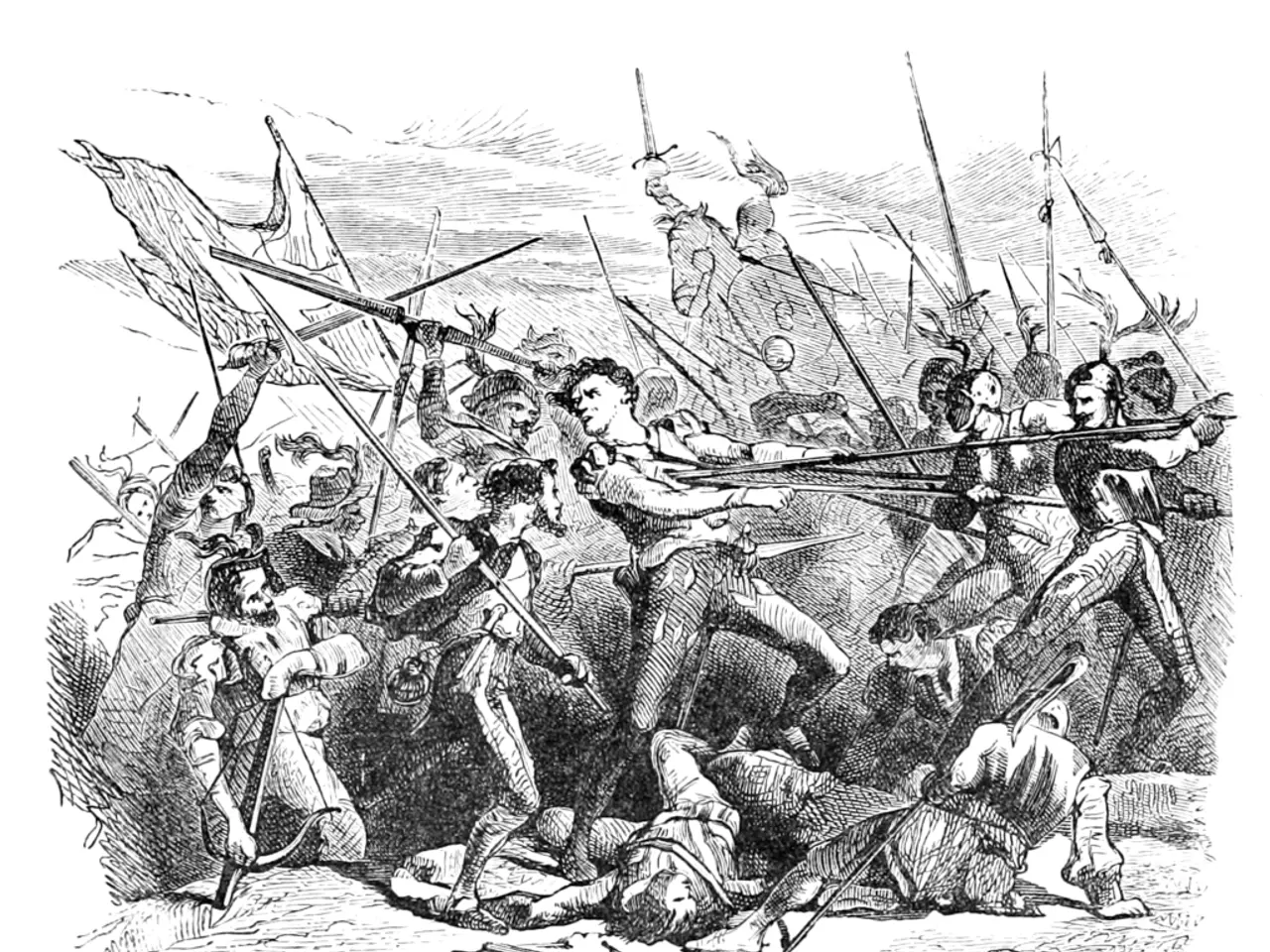Ethnic group in Cameroon pushed to align with warring factions due to ongoing armed conflict
In the Northwest region of Cameroon, the Mbororo community has been disproportionately affected by the prolonged armed conflict that erupted in 2016. Amnesty International's report sheds light on the devastating impact, with approximately 162 Mbororos killed, 300 homes razed, 2,500 cattle seized or killed, and XAF 180 million (about USD 293,900) paid in ransom for kidnapped Mbororos.
The conflict, between the Cameroonian government and Ambazonian separatist rebel groups, has significantly impacted the civilian population and the economy of the Anglophone regions. Aissatou, a Fulani woman, is one of the many victims living in a conflict-affected area. She battles with post-traumatic stress disorder, as scenes of her husband's tragic death keep flashing in her mind. Aissatou is not educated and has no practical economic skills, making her situation even more precarious.
Tragically, Aissatou's husband was shot and killed by the militia. Aissatou and her children hide during gunfire, adding to their trauma. Some Mbororos have joined the militia to protect their cattle and land from separatist fighters known as Amba Boys. However, this has led to accusations that Mbororos are implicated in the armed conflict and warrant ongoing attacks by separatists.
Beriyuy Cajetan, a human rights activist and head of CHRDA, stated that Mbororos are sometimes targeted "just because they are Mbororos." Berinyuy also noted that both separatist fighters and Mbororo militias have committed serious human rights violations.
Adamou, a Mbororo man, fled his native, Wum, to Bamenda due to threats and assassination attempts from the Amba Boys. He claims to have magical bracelets that have helped him survive numerous assassination attempts. Adamou is a founding member of a vigilante group in his village, working in collaboration with Cameroon's military forces for self-defense. He believes the government is trying to wipe out all Mbororos and will not allow it to happen.
The crisis stems from the impact of colonization, artificial borders, and failures of decolonization and post-independence state-building. The Mbororos have historically migrated from Senegal to Northern Cameroon, settling in various areas in the North West Region. However, this nomadic lifestyle has led to perpetual conflict over land with native farmers in Nwa.
The Cameroonian government has increased security measures, engaged in dialogue with community leaders including the Mbororo, and cooperated with international peace missions to address the armed conflict's impact since 2016 in the anglophone regions. A partnership agreement allows for the republishing of this story on another website.
Aliyou Gidadoh, a taxi driver, escaped with his family from his village in Ntiswa due to threats and attacks by Amba Boys. He feels separated from his culture and homeland as his cows, who he considers his children, have been killed. Musa, a part of the Mbororo community, fled his village in 2021 but had to return after suffering from severe burns in Yaoundé, Cameroon's capital.
This story was originally published by Minority Africa. The ongoing conflict in Cameroon's English-speaking regions has resulted in over 6,000 people being killed and over 500,000 displaced. The Mbororos, a historically nomadic people, have been caught in the crossfire, with their lives, homes, and livelihoods devastated by the conflict.
The story serves as a stark reminder of the human cost of the ongoing conflict in Cameroon's Anglophone regions and the urgent need for a peaceful resolution.








